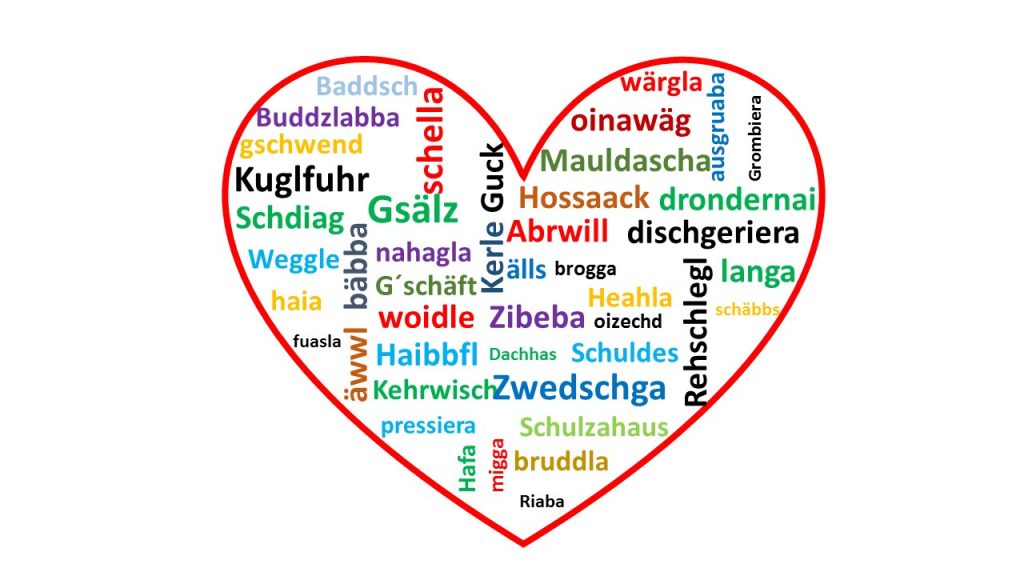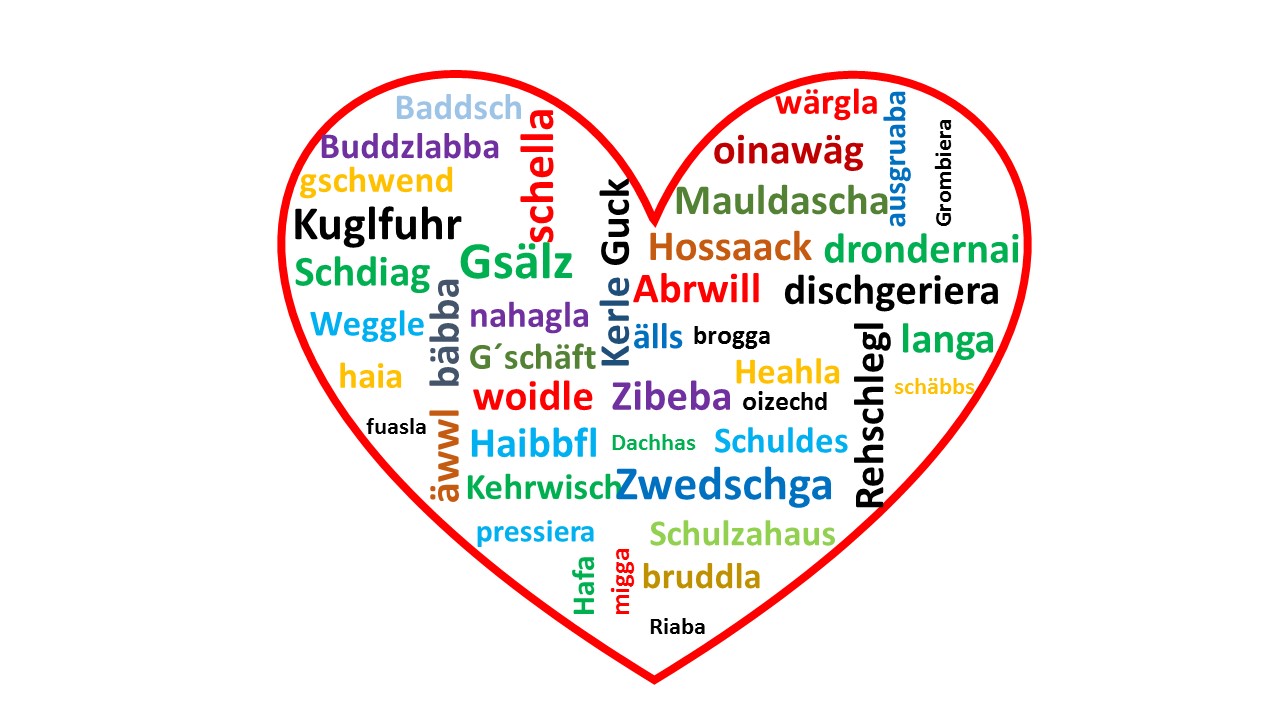 “I hol mer zerscht mol en Kaffee in dr Kafede, sonschd schlof I glei wieder ei.” If you hear this at university in the morning, you might not understand it as a non-Swabian. Of course, there’s a wide spectrum of dialects in Germany, some of which aren’t easy for outsiders. Since our noble institution is located in the Swabian part of Bavaria, some of the residents speak Bavarian varieties (“Boarisch“), whereas others „schwätzat Schwäbisch“, with the river Lech as a linguistic border. Augsburg, as the capital of Swabia, has its own Swabian variety: Augschburgerisch. In fact, you will be easily detected as a „Zuazogner“, if you say Augsburg instead of Augschburg.
“I hol mer zerscht mol en Kaffee in dr Kafede, sonschd schlof I glei wieder ei.” If you hear this at university in the morning, you might not understand it as a non-Swabian. Of course, there’s a wide spectrum of dialects in Germany, some of which aren’t easy for outsiders. Since our noble institution is located in the Swabian part of Bavaria, some of the residents speak Bavarian varieties (“Boarisch“), whereas others „schwätzat Schwäbisch“, with the river Lech as a linguistic border. Augsburg, as the capital of Swabia, has its own Swabian variety: Augschburgerisch. In fact, you will be easily detected as a „Zuazogner“, if you say Augsburg instead of Augschburg.
Regional dialects mix due to people moving within Germany and Augsburg is a city with a lot of transition, which, in turn, contributes to an individual’s own dialect, or idiolect. For example, I didn’t like hearing the answer „A Ebbserl und a Nixerl“, after coming home from school and asking what my father had prepared for lunch – as it literally means „ein Etwas und ein Nichts“, therefore nothing.
As a student of the University of Augschburg, the following sentences might be useful and help you not to be detected as a “Zuazogner” in the first place. When asked to take part in a Saturday afternoon class, every Augschburger teacher will accept the excuse “Do ka I leider eda, am Samschdag spielt dr FCA dohoim”. Other important sentences are “D Schdroßabah isch leider zspät komma” or “Auf dr B17 war mol wieder die Hölle los” to excuse yourself for being late.
Unfortunately, dialects are nowadays often smiled at or its speakers ridiculed. The Swabian dialect, because of the foreign and strange quality some people perceive in it, is particularly favoured for parodies of popular films (e.g. Star Wars: check out Virales Marketing im Todesstern on YouTube, where the Swabian dialect of the Imperial officers is infused with Business English) or even a new synchronisation of meetings of the Bundestag.
Held annually on 21 February, the International Mother Language Day was announced in 2000 by UNESCO “to promote the preservation and protection of all languages used by peoples of the world“. As dialects are varieties of a language, which differ in vocabulary, pronunciation and even grammar, they can sometimes be difficult to understand, even for native speakers. So we invite everyone in Augschburg to protect their local dialect and the words that are special in their own family! Dialects are something we inherit, they’re part of our cultural identity; we learn them from our parents and grandparents, neighbours and friends, so we should do anything to keep the tradition, even if it’s just a “bissle”.
Authors: Ariane Scheuer & Elena Mayr
Picture: Elena Mayr

